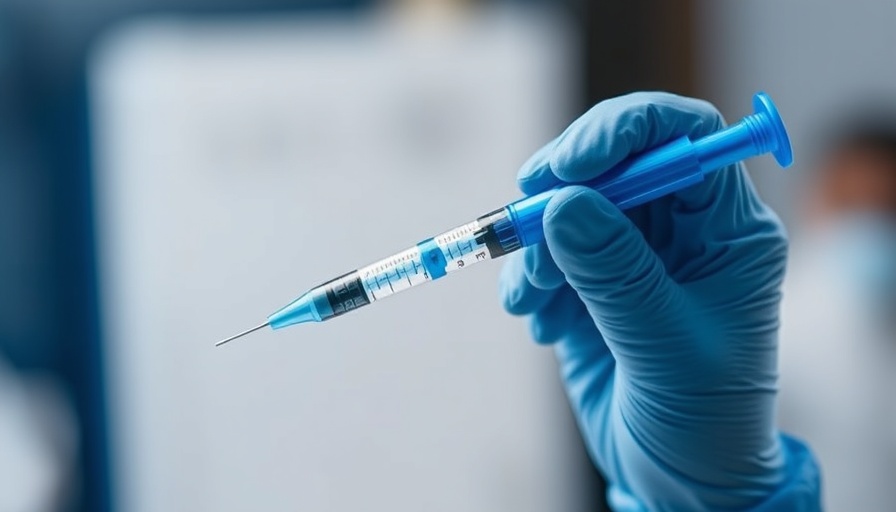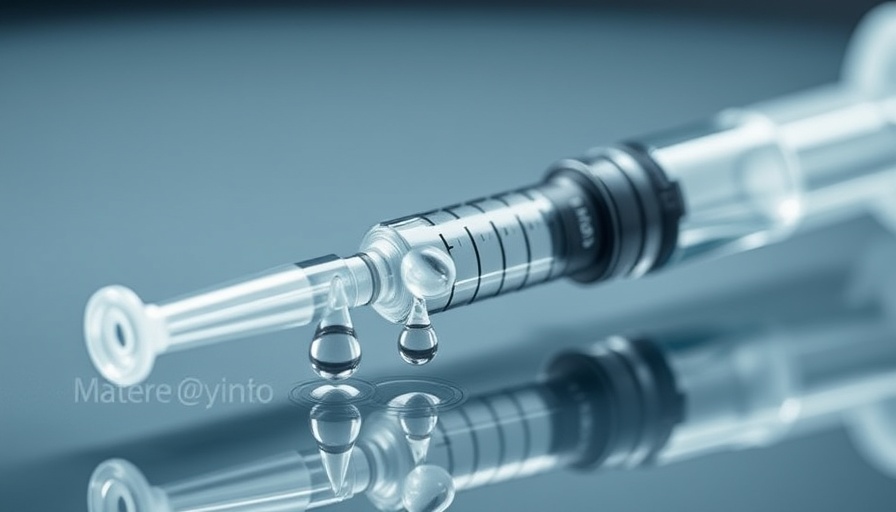
Understanding the Impact of GLP-1 Medications on Facial Aesthetics
The rise of glucagon-like peptide-1 (GLP-1) medications has significantly altered how many patients approach weight management. While these drugs have gained popularity for their effectiveness, recent studies highlight a concerning side effect: facial volume loss. This notable change can leave individuals feeling dissatisfied with their appearance, prompting an exploration of solutions that address both weight loss and aesthetic integrity.
The Trial: Evaluating Injectable Solutions
In a groundbreaking trial recently unveiled by Galderma at the prestigious J.P. Morgan Healthcare Conference, preliminary results suggest a promising pathway for those experiencing complications from weight loss medications. The study investigated the effects of combining Restylane Lyft and Sculptra for patients grappling with the aesthetic repercussions of facial volume loss. During the trial, participants received injections designed to enhance facial contours, ultimately aiming to revitalize their appearance.
Patient-Centric Methodology: SHAPE Up Holistic Individualized Treatment
The innovative treatment approach used in the trial, known as the SHAPE Up Holistic Individualized Treatment (HIT™), demonstrates a commitment to customization in aesthetic care. Each patient's treatment plan was tailored according to their specific needs, which included two key products—Sculptra for volumizing and Restylane for contour corrections. Following up on treatments at specified intervals ensured that patients could experience the full benefit of the regimen while maintaining optimal skin quality.
Results Matter: High Satisfaction Alongside Aesthetic Improvement
Initial feedback from participants in the trial revealed high levels of satisfaction regarding their treatment outcomes. With facial appearance improving significantly and no adverse effects reported, this research offers a positive outlook for addressing the aesthetic challenges posed by weight loss medications. Galderma’s CEO, Flemming Ornskov, noted the commitment to innovating solutions that cater to evolving patient needs, an assurance that future findings will continue to shed light on this important issue.
The Broader Picture: Why This Matters
As more individuals turn to prescription medications for weight loss, understanding the associated effects on facial aesthetics becomes crucial. For many, the realization that weight loss comes at a cosmetic cost can be disheartening. The restoration of facial balance and vitality through injectables not only improves self-esteem but also provides a pathway to embracing healthier lifestyles without sacrificing outward appearance. This intersection of health and aesthetics prompts essential discussions around patient education and support in the context of contemporary weight management practices.
Future Perspectives: What Lies Ahead for Aesthetic Treatments?
The successful results from this trial lay the groundwork for future innovations in injectable aesthetic treatments. With ongoing advancements in technology and methodology, healthcare providers will likely be better equipped to offer practical, tailored solutions for those affected by the side effects of weight loss medications. As this trend continues to unfold, we may also see expanded studies assessing long-term efficacy and more diverse product offerings, ensuring that aesthetic medicine keeps pace with modern therapeutic needs.
 Add Row
Add Row  Add
Add 






Write A Comment